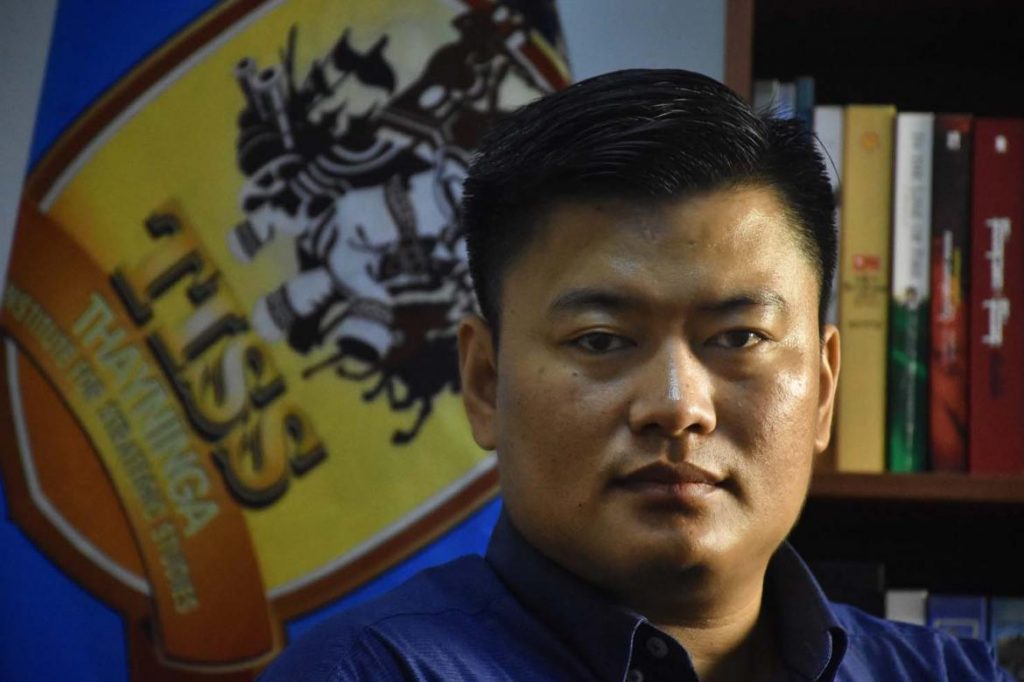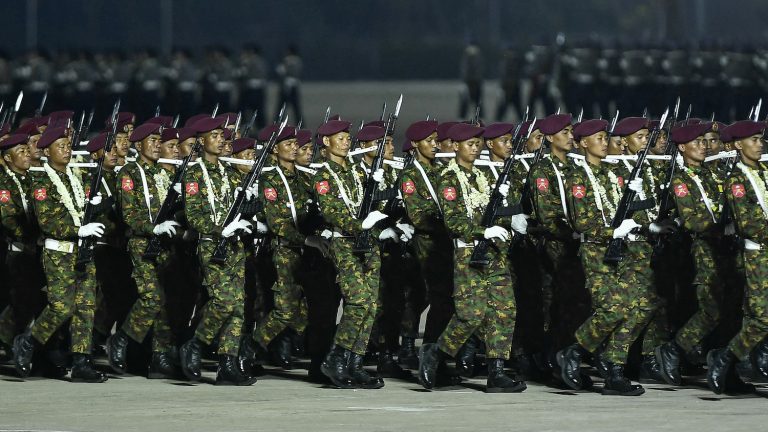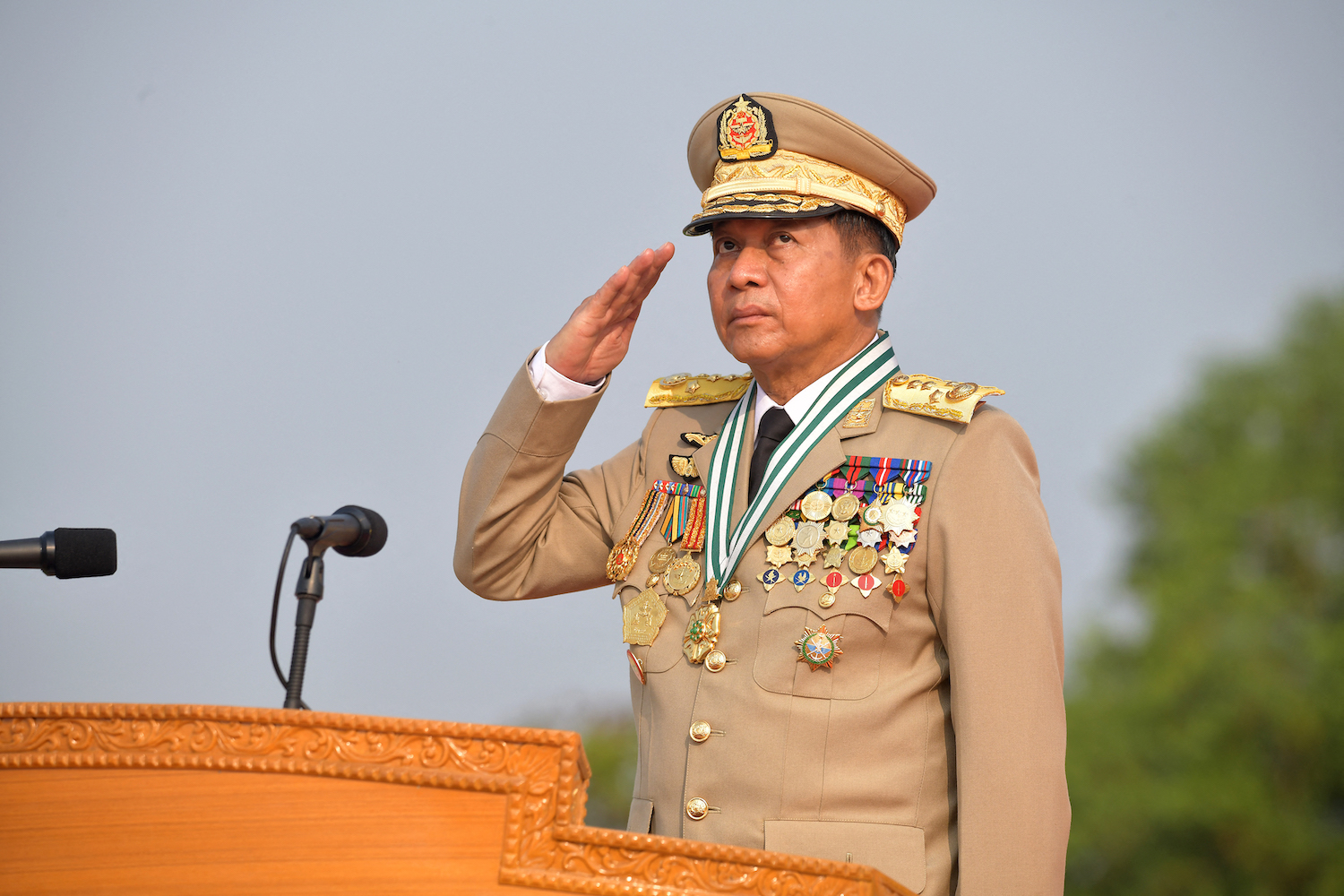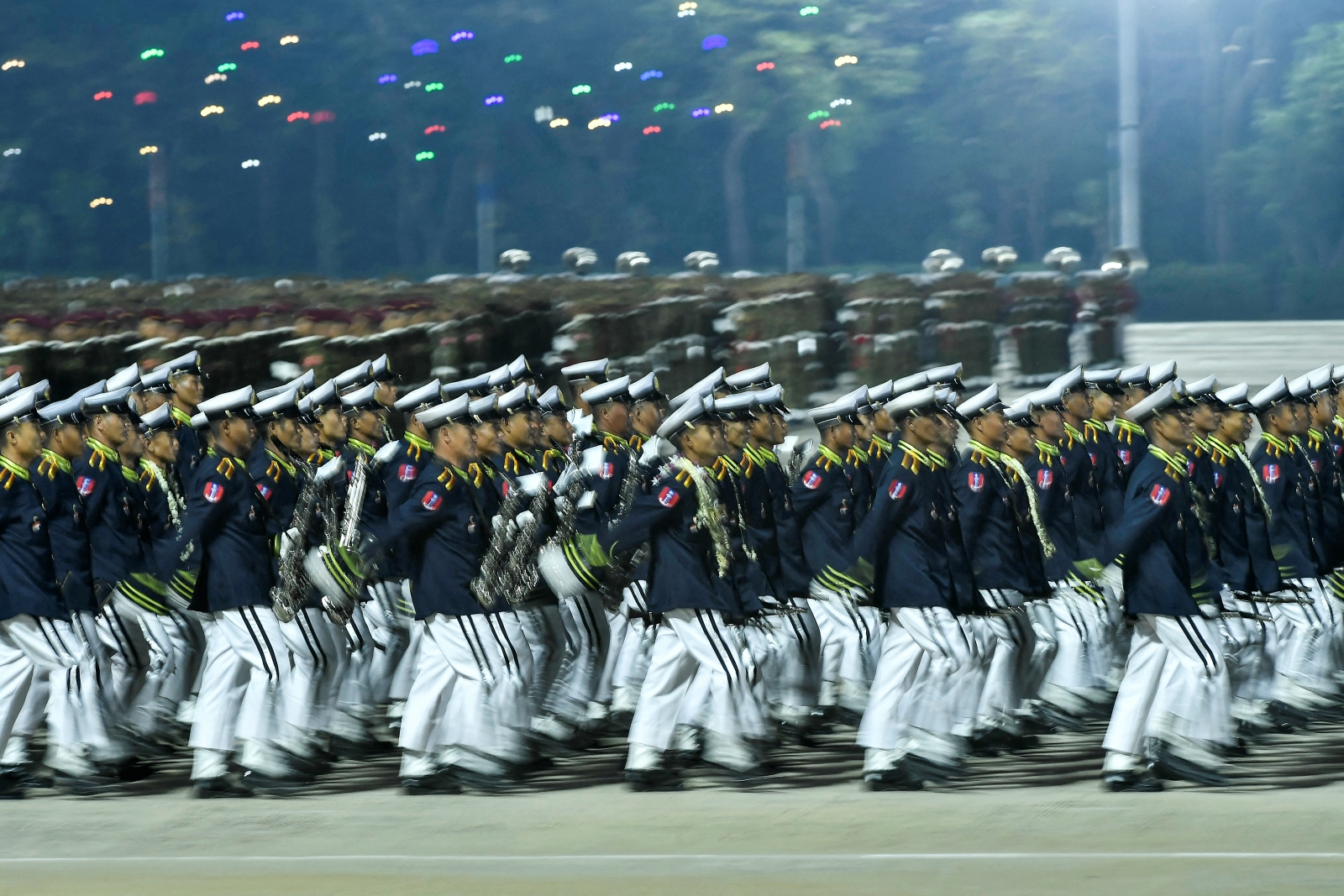A think-tank formed by Tatmadaw “veteran youths” but that claims to be independent has criticised the International Criminal Court for rejecting its submission on the crisis in Rakhine State.
By MRATT KYAW THU | FRONTIER
A YANGON think-tank that wants to “build a bridge between the Tatmadaw and the people” has expressed disappointment that the International Criminal Court rejected its submission on the crisis over Rakhine State.
The Thayninga Institute for Strategic Studies had sought permission from the ICC to submit its third party observations as an amicus curiae, or “friend of the court”.
The think-tank’s submission was a 35-page document about migration to Rakhine between 1839 and 2005, violence there between 1942 and 2017, the government’s response to “terrorism”, and its humanitarian activities in the state.
It was among documents submitted in response to a request from a prosecutor at the ICC to determine if it had jurisdiction over the alleged deportation of Rohingya Muslims from Rakhine to Bangladesh. The ICC was established under the Rome Statute, to which Bangladesh is a party but Myanmar is not.
Support more independent journalism like this. Sign up to be a Frontier member.
An ICC pre-trial chamber of three judges said on August 10 it had rejected the submission because it did not address the alleged deportation of Rohingya and because it was received six weeks after the June 18 deadline for amicus curiae submissions.
The ICC “did not give any proper reasons” for rejecting the submission, said U Naing Swe Oo, 37, the founder and executive director for the Thayninga Institute of Strategic Studies, which was established on January 1, 2017.
“I guess the rejection is probably because we used [the terms] ‘Bengali Muslims’ and ‘ARSA terrorists’ [in the submission],” Naing Swe Oo told Frontier.
He said he did not understand why the ICC said the submission did not meet the deadline.
“We submitted it on July 26, one day ahead of the deadline,” he said.
The ICC said it received the submission on August 6. It said there was a July 27 deadline for submissions from state parties, but the Myanmar embassy in Brussels had declined to accept its invitation to submit observations.
Naing Swe Oo has long been fascinated by military affairs. The institute he founded emerged from a magazine launched with like-minded friends in 2015, a year after he resigned as an assistant lecturer at the Defence Services Medical Academy, from which he had graduated with a Bachelor of Medicine, Bachelor of Surgery in 2005.
In 2008 he was among a group sent by the Tatmadaw for further study in Russia and returned with a diploma in medical genetics and hepatology from Lomonosov Moscow State University. More recently, he completed an MBA at Aldersgate College, Myanmar, and is studying for a PhD.
Asked about his decision in 2014 to resign from the Tatmadaw, in which he had the rank of Captain, Naing Swe Oo laughed and said, “It’s personal”.
Despite a career focusing on medicine, Naing Swe Oo has been interested in military matters since he was a boy.
“Research on military affairs has been my hobby since I was young,” he said.
His hobby found expression in Thayninga: Weapons and International Warfare, the magazine launched with friends in 2015 and published every three months.
Naing Swe Oo said he and his friends had often discussed military affairs and weapons on social media, and decided to launch the magazine to share their ideas and information with a wider audience. Pre-production copies of the magazine were sent to the ministries of defence and information to seek official approval.
“No one from the army encouraged us to do this [launch the magazine]; we started on our own and not even my dad was aware of it. Then they told us that they like it and we got permission [from the Ministry of Defence],” he said.
Naing Swe Oo’s father, U Thein Swe, is a retired Tatmadaw colonel who was managing director of Myanma Railways from 2009 to 2013, and he has a younger brother who works in the research department of the Amyotha Hluttaw.
Naing Swe Oo said he formed the institute in 2017 because he wanted to establish a “unique research association” into defence and military matters and provide a forum for “veteran youths” such as himself.
“Most people understand ‘veteran’ to mean those who are old and retired,” he said. “But ‘veteran youths’ refers to those who have served in the army and are still young.”
The institute has a three-member board of “veteran youths” and a total of 10 staff. Most of the work for the magazine is outsourced. Naing Swe Oo’s inspiration for the magazine is the globally respected Jane’s Defence Weekly. It’s his dream that the magazine content will match the standards of Jane’s in the future.
Thayninga focuses on national security issues, particularly in relation to Rakhine, “where the Tatmadaw took responsibility for security as ordered by the government”, Naing Swe Oo said. He wants the institute to have an advisory role with the Tatmadaw and the government and, where necessary, offer constructive criticism.
He acknowledged that criticising the Tatmadaw was “complicated”, but added that it should release information faster, as should the government.
Since the institute was founded, Naing Swe Oo said its efforts to share information about military affairs were appreciated by many and he hoped it could expand its office and library.
Thayninga’s most important mission was to build “a bridge between the Tatmadaw and the people”, he said. Asked if it was appropriate for a think-tank to play the role of bridge builder, Naing Swe Oo acknowledged that it was a point of contention, but didn’t answer the question.
Although the institute has hosted large press events at expensive locations like Melia Yangon and Chatrium Hotel, Naing Swe Oo said it was a financial struggle to publish the magazine and keep the institute going. It has around 10 full-time staff, but the magazine mostly relies on contributors.
“Some current military personnel are involved, but they cannot join the organisation. Some veterans working in the civil service are also involved with Thayninga,” Naing Swe Oo said.
He insisted that Thayninga’s founders had invested their own money in the institute and it received no financial support from any organisation, including the Tatmadaw.
“We are running our organisation independently,” he said. “We lack human resources and we have financial problems as well.”







